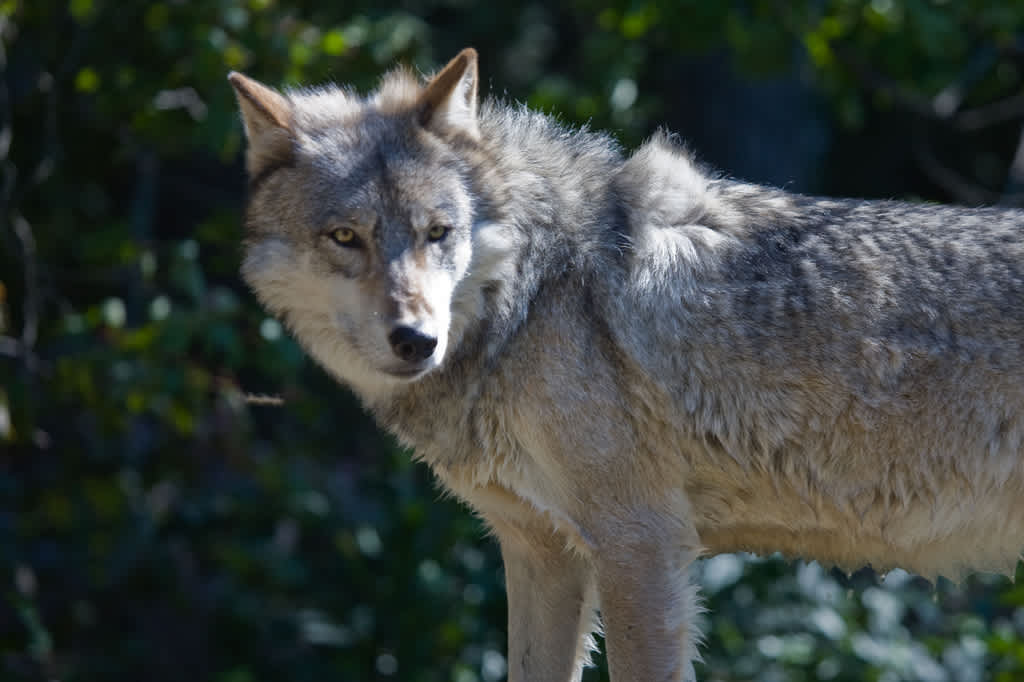Michigan DNR Confirms Presence of Wolf in Lower Peninsula
OutdoorHub Reporters 09.18.15

For only the second time in over a century, the Michigan Department of Natural Resources (DNR) has confirmed that a wild gray wolf has been seen in the state’s Lower Peninsula.
The DNR announced on Thursday that DNA analysis of scat found last year confirmed that a wolf had been wandering through Emmet County, near the Lower Peninsula’s northernmost tip. Signs of a wolf living in the area were first discovered by tribal biologists with the Little Traverse Bay Band of Odawa Indians, and trail camera photos were later recovered that appeared to show an adult wolf.
“We have had some tracks and potential sightings, but genetic testing gives us a definitive confirmation,” said Kevin Swanson, DNR bear and wolf specialist.
Michigan is one of a few states that has a significant wolf population, but all of the roughly 630 animals in the state were believed to be residing in the Upper Peninsula. Over a decade ago in 2004, another lone wolf managed to cross an ice bridge linking the two regions. Since thenm experts say they have not had any evidence of wolves crossing into the Lower Peninsula—until now.
“Genetic testing also confirmed that the wolf was not likely to be an escaped captive, since it closely matched genetic information taken from northeast Ontario wolves,” the DNR stated.
Officials say that northern counties like Emmet are well-suited to supporting wolves, and they are not entirely surprised that the animals have started to move south. The DNR suspects that there are not enough animals currently in Emmet County to be considered a breeding population, but have found potential wolf tracks in neighboring Cheboygan County.
“Anyone finding possible wolf tracks or collecting photographic evidence should contact a local DNR wildlife office,” officials advised. “If anyone should encounter a wolf, the DNR recommends standing tall, making noise and walking away slowly. When in a safe location, notify the DNR of the sighting.”
Michigan’s wolf population has been the cause of much controversy in recent years. After surpassing management goals, officials and lawmakers in Michigan proposed opening a hunting season to help control the wolf population. The proposal was heavily opposed by animal rights organizations, but in 2013 the state held its first wolf hunt since the species was reintroduced. Shortly afterwards in 2014, a US District Court decision returned the gray wolves in Michigan back to the endangered species list and put them once again under federal protection.
The Michigan DNR, along with many conservation groups, opposes the decision and is currently working to bring them back under state control. Killing or injuring a wolf, except in the protection of human life, is currently punishable under federal law.

